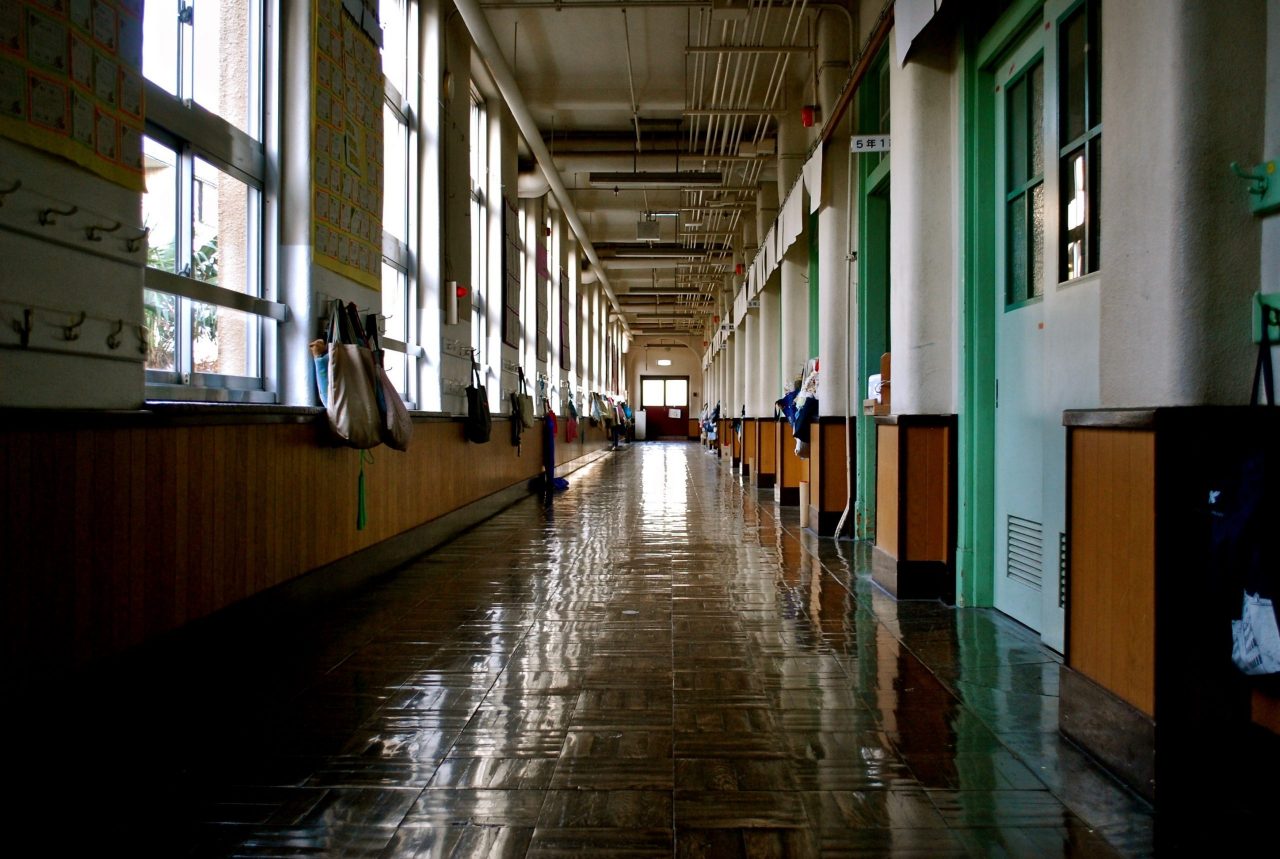by Gary Pettengell, CEO, ECINS
Excluding a child from school can cost the taxpayer around £370,000 in the long term, a report estimates.
The 2017 study, by the IPPR think tank, argues that there is a high economic price to exclusion, costing the public purse money in terms of education, benefits, healthcare and criminal justice.
Exclusion is on the increase. According to official figures, children in England were permanently excluded from school 6,685 times in 2015-16. This figure rose by 10% in 2017. In some areas the increase was 300%.
Based on this number, the IPPR calculates that excluding children cost the government around £2.1 billion last year. This calculation reflects the cost of educating these young persons in alternative settings to mainstream school, lost taxation from lower future earnings, the higher likelihood of these youngsters going through the criminal justice system, benefits payments and higher average healthcare costs for these young people across their lifetime.
The study goes on to claim that this cost to the taxpayer is likely to be much higher in reality, as there is evidence that thousands of children are being effectively excluded from mainstream schools in ways that are not covered by official government exclusions data.
In addition to this long term cost to society under new Government legislation £4,000 is deducted from a schools budget for each excluded pupil.
A unique service in Peterborough, dedicated to reducing the number of children permanently excluded in schools, is helping to provide a range of specialist support to children with additional needs and get them and their families help to improve their lives.
The Pupil Referral Service operates as a specialist setting under Peterborough City Council and has been heralded by OFSTED as a model of excellence some three times. It is the only service of its type nationally and, since inception vastly reduces cases of permanent exclusions across the city of Peterborough.
Unique Approach
The scheme was set up two years ago by Head of Service Claire George and ex-Police Officer Andy Craighead who focused their efforts on helping children of all different age ranges, from Primary to Secondary Mainstream Schools, who had either been permanently excluded from school or were at the point of being excluded. Andy embedded himself in the scheme saying “Every Friday we would get a call from a school saying that they didn’t know what to do with a specific child, that they had tried everything and that nothing was working.
One of the key challenges for us was the legal requirement that legislates for a specific number of days that a local authority must deal with permanent exclusions and losing two days over a weekend meant that it was difficult to process and comply within the timeframes. It became obvious that we needed a unique approach and one that promoted early intervention, rather than crisis intervention, to support these children, their families and their schools.”
In response to the need for early help, Claire George set up a Behavioural Support Panel involving a multi-disciplinary team of professionals, tasked as a group, to individually assess and ‘wrap support’ around a child and their family. The Panel is chaired every Friday by the Pupil Referral Service’s Andy Craighead with representatives including the Peterborough City Council’s Early Help Co-ordinator, an Educational Psychologist, a Mental Health Nurse from Project for Schools which is part of Cambridgeshire and Peterborough NHS Foundation Trust and a dedicated single worker from Children and Adults Mental Health Service (CAMHS).
Involvement and Engagement
Claire said “The purpose of the Behavioural Support Panel is to look at the paper evidence that has been brought by the school and present the case around the child. The majority of the children referred are at high risk of permanent exclusion and the professionals on the Panel are there to agree an action and support plan that is focused on getting the children the support they need in their school setting and reducing instances of exclusions.
“A key part of the process is the involvement and engagement of the child’s family. Andy and myself carry out a home visit on behalf of the child and we carry out a detailed assessment of the family to consider their support needs in the first instance. We allocate an Intervention Specialist Worker so the family has a dedicated point of contact and we arrange for any referrals for support required as a result of the family assessment.
It’s not just behavioural or emotional support that we can signpost to, we also offer support for issues such as drug and alcohol problems, rent arrears or mental health issues to the family unit as a whole.
The Right Professionals
‘As we have the right professionals on the Panel, we arrange for a proper assessment of the child’s social, emotional, communicational and behavioural needs and arrange for specialist interventions and the provision of an Educational Health and Care Plan, if required, in order to ensure that the child’s specific and individual needs are met in the school setting.”
Speaking of the success of the service Claire said, “We were having 1 or 2 permanent exclusions every 3 weeks but it’s fair to say that since setting up the Behavioural Support Panels we have only had 2 permanent exclusions in 2 years.”
Safeguarding and Compass Provision
Looking after the most vulnerable children in the City involves a range of programmes. As part of the Safeguarding Team, some of the children Claire and Andy work with are on Full Child Protection Plans. Within the City’s Learning Centre they have a Compass provision which is responsible for unaccompanied minors from Syria, Iraq, Iran and Afghanistan who have suffered extreme trauma. The Learning Centre currently have provision for up to 40 unaccompanied children.
PREVENT
They are also responsible for working with schools for the City’s PREVENT programme which Andy was also involved in formerly within his Policing role. Andy said “We had a need for and a requirement to record the information we were receiving from schools and we needed to tie it all together with the professionals on our panel. We needed a secure system that could work across all the agencies – mental health (NHS}, local authority and schools and we also needed to give the Police access to information on occasions. As Cambridgeshire were already using the multi-agency collaboration system E-CINS for a range of solutions across the county, including PREVENT, I fully understood the capabilities and benefits of the system and recognised it as being the ideal platform to fully meet a partnership approach.
“We use ECINS very successfully to help us manage the Pupil Referral Service. It has allowed us to link the schools and the wider services to our day to day work in the Behavioural Support Panel and involve all the agencies that need to be involved. A school will send an electronic referral form through to us and an Administrator creates a profile of the family on ECINS. After Claire and I carry out our home visit I upload the Home Visit Form onto the system, giving actions and tasks to the individuals involved in the Behavioural Support Panel for example, if I ask one of the Mental Health Nurses to carry out a framed assessment for a neurodevelopment report to be done they will upload the report onto ECINS and grant access to the individuals who would need to view it. This is all automated through ECINS which saves a considerable amount of time and effort. A Family Support Worker is tasked at the same time and they work with the family, constantly updating them with information.
Part of the review is evidence gathering and with ECINS being a secure cloud-based system the Support Worker is able to login remotely to get up to date information in realtime and update the system whilst out on Family Home Visits. ECINS has been absolutely central to the success of the scheme, it really is an amazing tool that has allowed us to carry out this work in a secure and efficient way and help us deliver joined up support.”
Andy continued “I wouldn’t say I am a confident computer-user but I do feel very much in control with the implementation of the scheme on ECINS. The system is locked down to just the people the Panel decide we want to work with on a daily, weekly and monthly basis. 14 people have general daily access and we invite the Police in on specific cases on a day to day basis. ECINS gives us the flexibility to involve people on a need to know basis and ensure that they only have access if we want them to.“
By working out the appropriate needs of the child and finding out what is needed for the child and the family Peterborough’s Pupil Referral Service is making a significant difference to children’s access to a full education, their health and wellbeing and the health and wellbeing of their families too.
Based on data provided by the Peterborough Pupil Referral Service, managed on ECINS the long term cost using IPPR study calculations was costing society between £6.29 million and £12.95 million per annum before using ECINS as a case management system for the projects management and communication tool. This figure is now just £370,000 per annum. A saving of £12.58 million. Before using ECINS to manage this project the cost of excluding pupils to schools across Peterborough was between £68,000 and £140,000 per annum. This has now been reduced to just £4,000 per year.


